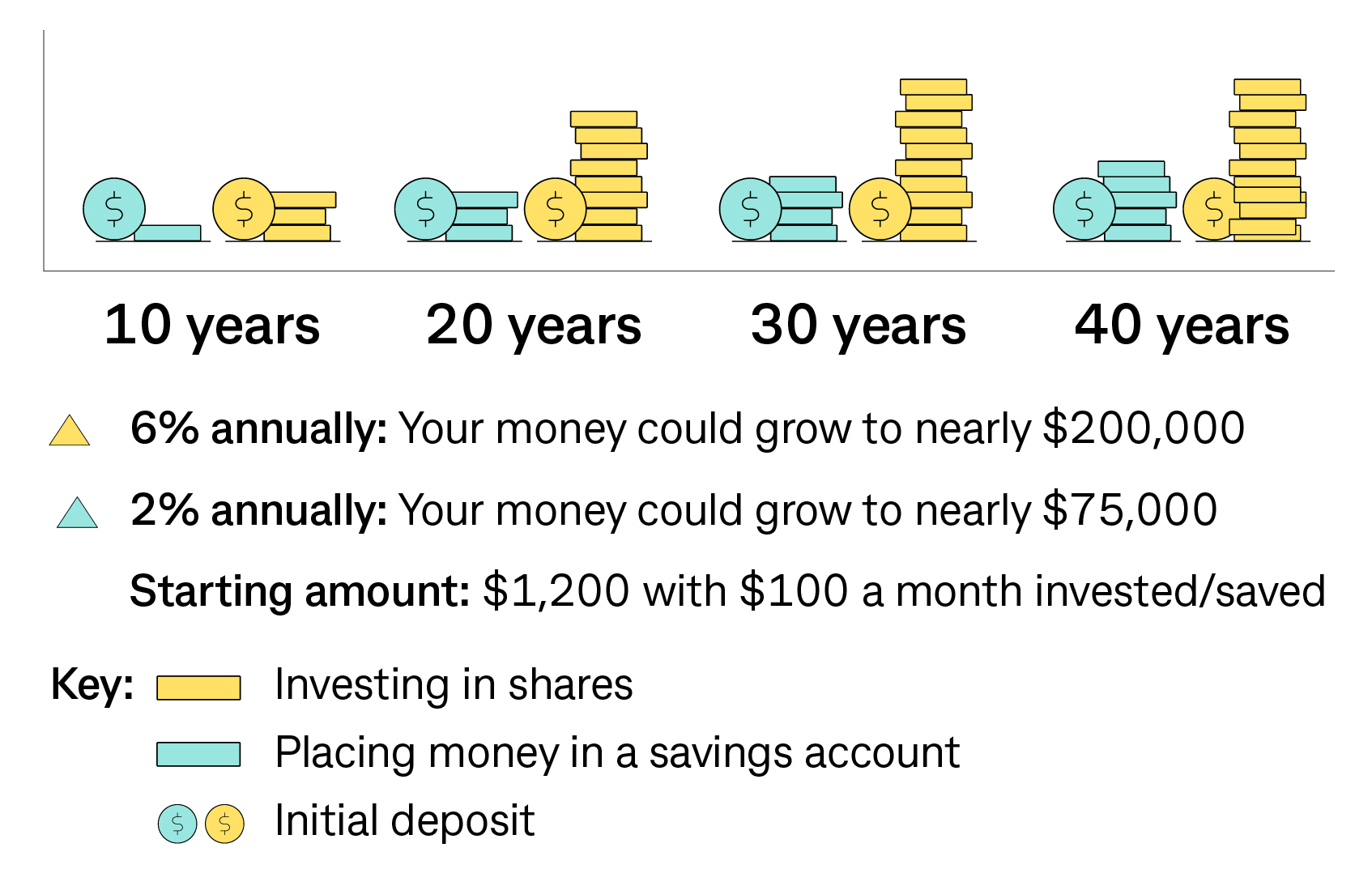Investing, whether in shares or other assets, can help you grow your wealth over time and achieve your life goals. Think about your future plans. Do you want to buy a home, have kids, travel, or start a business? Most of these plans require money, and investing can help you achieve them. Depending on your risk appetite, there are various investment options available.
Benefits of investing in shares
- Shares can increase in value over time (known as capital growth), allowing you to sell them for more than you paid.
- Investors can receive payments from a company's profits, known as dividends. These can provide another source of income.
- Investing in shares allows you to diversify your portfolio, spreading risk across different sectors and companies.
- Shares are generally easy to buy and sell, providing flexibility and access to your money when needed.
Investing vs. saving
While savings accounts or term deposits offer low risk returns, the gains are usually small compared to investments like shares and property, which have historically performed better.
Even a small increase of 1% or 2% per year on your portfolio can make a big difference over time due to the power of compounding. The goal of investing is to get your money working for you and create the potential for higher returns, even if it means accepting some additional risk.
Let's compare investing and saving over 40 years. Imagine you're 25 years old and plan to retire at 65. If you invest $100 per month in a fund tracking the stock market, starting with an initial deposit of $1,200 and growing at 6% annually, your money could grow to nearly $200,000. In contrast, the same amount in a savings account with a 2% annual return might grow to just about $75,000. Why the difference? Stocks are riskier but offer higher growth potential. Savings accounts are more stable but have less growth potential.







